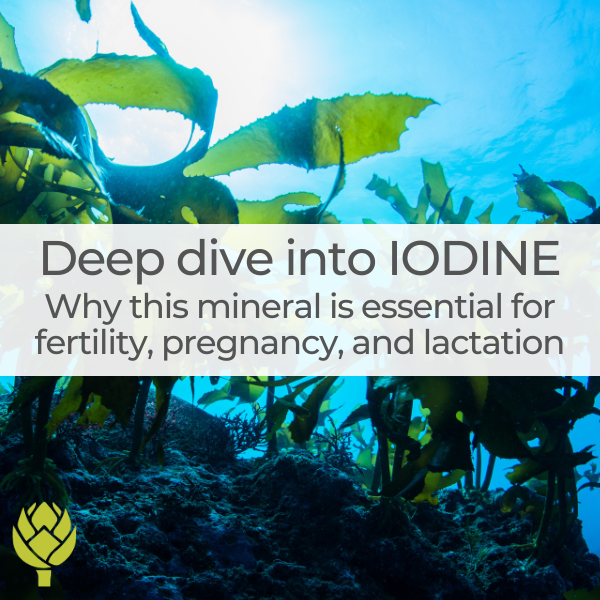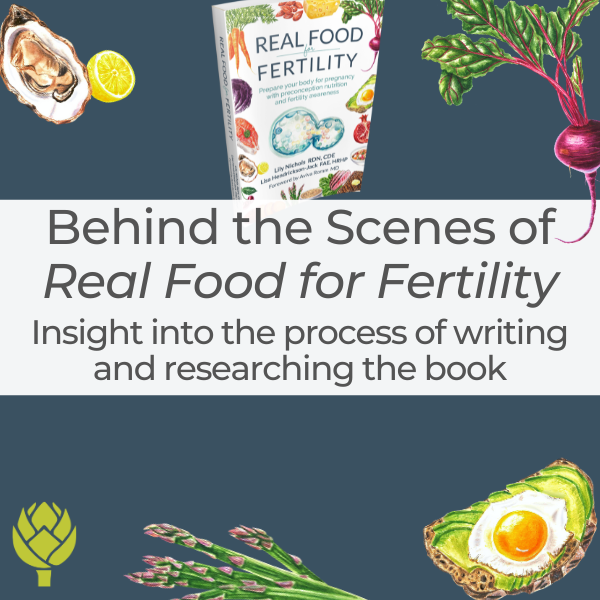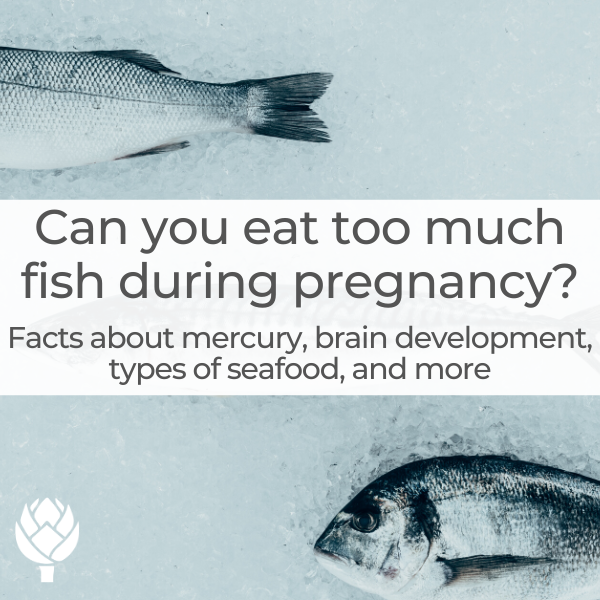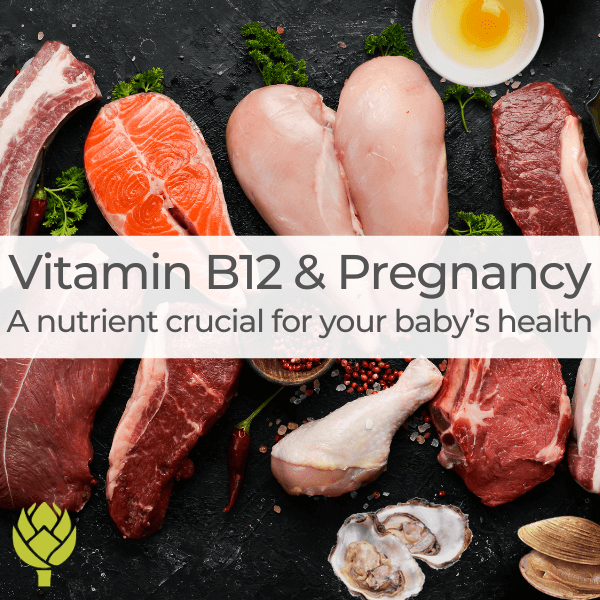The holidays are upon us and that means it’s egg nog season. You might not expect it, but I’m a fan, especially when it’s topped with freshly grated nutmeg and spiked with bourbon.
Egg nog always seems like a great idea until the bloating sets in a few hours later. Now, not all nogs are created equal, so before you go blaming lactose as the culprit, double check the ingredients and make sure there are no strange thickeners and emulsifiers (I’m looking at you, carrageenan and guar gum) or high fructose corn syrup (fructose intolerance symptoms mimic lactose intolerance).
However, if you’ve found a clean egg nog like the organic one I love from Straus Dairy which has just 5 ingredients (milk, cream, eggs, sugar, and nutmeg), and you’re still feeling icky after drinking it, you might want to consider lactose intolerance.
I’m not just pointing the finger at egg nog. If you get gassy or bloated after drinking milk or eating any dairy products, you might be lactose intolerant. Lactose intolerance is a condition where your intestines do not produce an enzyme, called lactase, to digest the lactose sugar found in milk. Common symptoms of lactose intolerance are gas, cramping, bloating, loose stools or diarrhea, and even vomiting after eating dairy products.
Some dairy products are higher in lactose than others, so you may notice a difference in your symptoms when drinking milk (high in lactose) compared to eating yogurt or cheese (usually lower in lactose).
How to test for lactose intolerance?
You can confirm that your digestive symptoms are caused by lactose intolerance by visiting a gastroenterologist and getting a hydrogen breath test. Your doctor will have you drink a liquid containing lactose and have you breathe into a contraption at set time points (such as every 30 minutes) for a few hours and measure the hydrogen gas in your breath. If the hydrogen levels are high enough, your doctor will diagnose you with lactose intolerance. Just beware that if you truly have lactose issues, you might have some uncomfortable digestive symptoms during this test (in other words, stay close to the bathroom).
What lactose intolerant treatment can you try?
Treatment for those who are lactose intolerant involves avoiding lactose or taking supplemental lactase enzyme to help you digest it.
- Avoiding dairy products completely
- Limiting your consumption of dairy products (if you can tolerate a little lactose)
- Choosing products labeled as “dairy free” or “lactose free”
- Drinking raw milk if you can find a clean, grass-based dairy farm (raw milk naturally contains the enzyme lactase, but the enzyme is destroyed during pasteurization)
- Taking lactase tablets before eating dairy products
- Drinking Lactaid milk instead of regular milk
- Drinking almond or coconut milk instead of regular milk (making your own avoids sketchy ingredients – try this recipe)
- Using heavy cream instead of half & half or milk (cream is virtually lactose-free)
- Eating yogurt instead of milk (yogurt is lower in lactose due to the fermentation process, though it is not completely lactose-free. Greek yogurt tends to have the least lactose.)
- Eating goat or sheep milk yogurt instead of cow milk yogurt (both goat and sheep milk are lower in lactose)
- Eating coconut milk ice cream or fruit sorbet instead of regular ice cream
- Buying cheese made from raw milk instead of pasteurized milk (check out a nice cheese shop vs. the regular grocery store)
- Choosing aged cheeses, like a 6 month cheddar or Parmesan (longer fermentation means less lactose)
Still suffering? Consider food sensitivity testing
If you’ve tried all of the above and you’re still getting bloated and gassy from foods, you might want to consider comprehensive food sensitivity testing. Symptoms from food sensitivities can be delayed up to 4 days after eating, so if tracking down the culprit is feeling impossible, you’re not alone.
Trying to remember what you had for lunch 4 days ago is challenging enough, but figuring out which specific ingredient is to blame takes detective work to Sherlock Holmes’ level. When you’re tired of guessing in the dark and want relief without medication, it’s time to talk to a professional. If you’d like to find out more and see if food sensitivity testing is right for you, start by filling out a symptom survey here and setting up a free 15 minute phone consult with me. No better holiday gift than starting the new year symptom-free and with a clear understanding of what to eat to keep it that way. I have only 2 slots available for food sensitivity clients before the year’s end, so snag your spot before it’s gone.
As much as I love egg nog, I’m going to follow tip #2 and have just enough to satisfy that yearly craving and still keep my tummy happy. I know from experience that too much lactose upsets my stomach and I don’t want to miss out on the holiday fun because I’m stuck home with a belly ache.
What about you?
- Do you notice symptoms from drinking milk or eating other dairy products? How do you manage it?
- Have you been tested for lactose intolerance or do you just go by your symptoms?
I’d love to hear from you in the comments below.
If you liked this post and want more tips to eat well and live a life without digestive symptoms, sign up for email updates below. My free email newsletter goes out to my VIP email list each Tuesday and is packed with actionable health tips.
Until next week,
Lily










I mix frozen fruit (thawed) with lactose free yorgurt I still get bloating. Do you know why?
Hi Laura,
Good question. There are many possibilities and without knowing your history, it’s hard to know. Some people have dairy sensitivities in general, meaning they get digestive symptoms whether or not the dairy product has lactose. Some respond poorly to dairy proteins. There are folks who cannot fully absorb the fructose sugar in fruits and therefore cannot tolerate much fruit.
Good luck in determining the cause and if you get stuck, you can always look at my free ebook “30 Days To A Happy Tummy” or consider getting tested for food sensitivities.
Hi Lily,
I’ve discovered that I’m lactose intolerant/sensitive through elimination and a traumatic reintroduction! I can tolerate butter but I’ve decided to stear clear of other dairy.
For pregnancy, if I’m following all your other advice and eating plenty of liver, eggs, oysters/mussels, cod liver, etc, as well as butter, would any nutrients be lacking? What would you recommend to fill the gaps?
Thanks for all that you do – your book is my nutrition bible!
Seafood and other animal foods fill in many of the possible nutritional gaps. May need to be more diligent about organ meats for riboflavin, animal fats for A, D, K, fish that’s canned with the bones for calcium, and seafood for iodine, etc. See the section on calcium in Real Food for Pregnancy (supplements chapter) for more food sources of calcium.